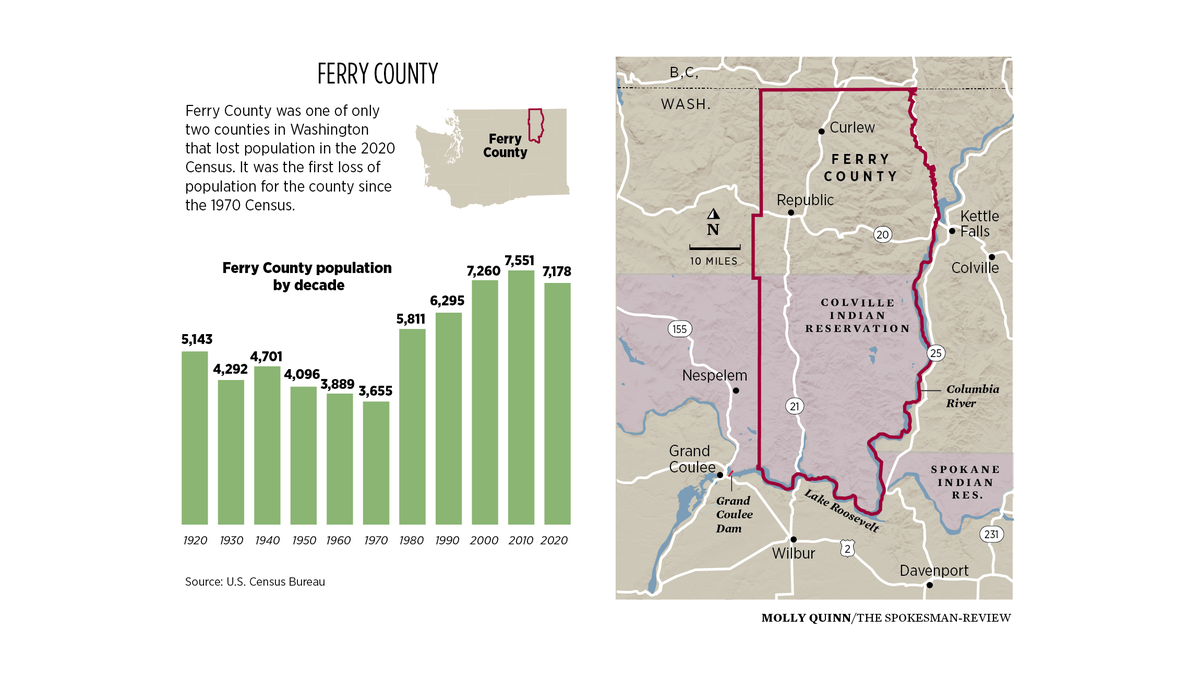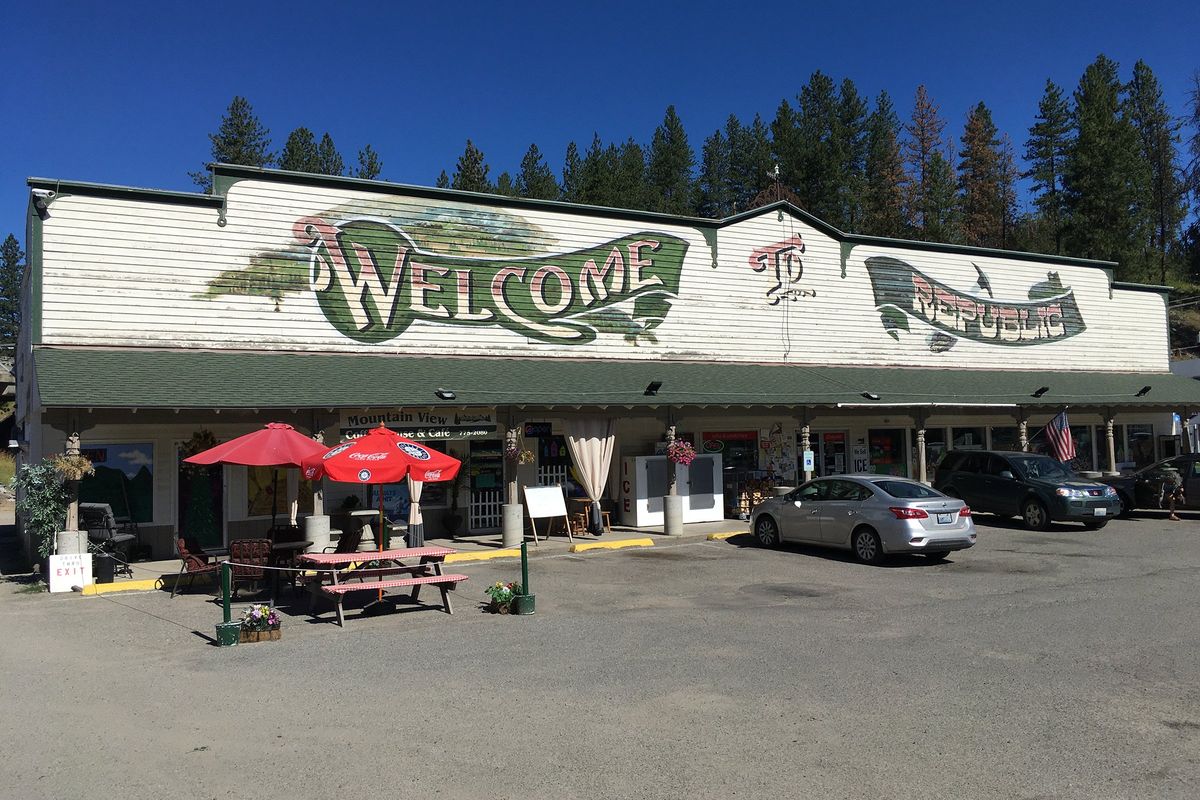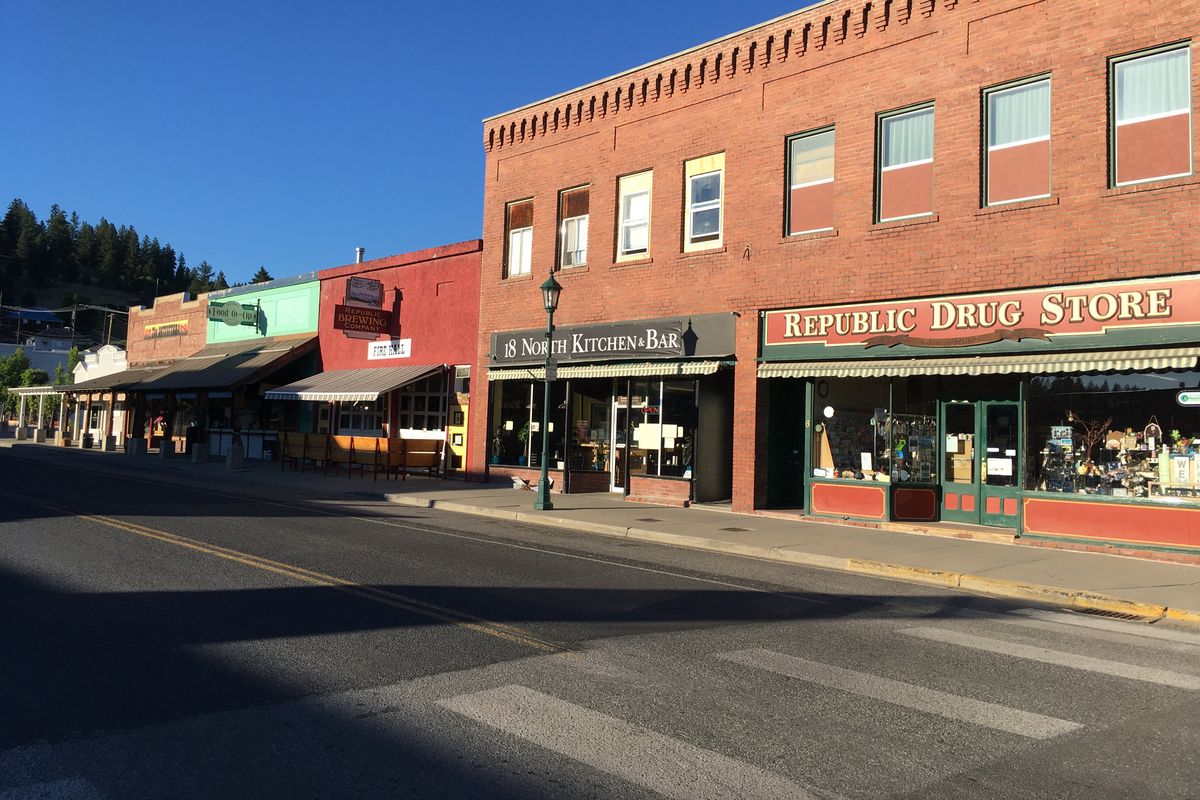After slump, Ferry County attempts to regain lost population in 2020 census
A gas station, convenience store and cafe welcome motorists to Republic, the seat of Ferry County, at the junction of state routes 20 and 21. (James Hanlon/The Spokesman-Review)Buy a print of this photo
REPUBLIC, Wash. – After decades of sustained growth, Ferry County was one of only two counties in Washington state to lose population in the 2020 census.
Since the COVID-19 pandemic, however, it is on course to reverse that trend.
Between 2010 and 2020, the rural county in north central Washington’s population dropped 4.9%, from 7,551 to 7,178 people. During that period, the county’s largest employer and last operating gold mine closed in 2018, finishing a series of industrial closures going back to the early 2000s.
“There is little to no industry to create any kind of growth,” said Michael Heath, chair of the Ferry County Commission.
The county is isolated by rugged mountain terrain and the Colville National Forest, bordering Canada to the north and the Columbia River to the east and south. The largest town and county seat, Republic (population 992), was founded by gold prospectors in the late 1800s. Its mining legacy is still celebrated by the town’s annual festival, Prospectors’ Days, and businesses with names like Prospector Inn and The Miner Saloon.
Ferry County’s geography limits potential growth. The north half of the county is mostly federal lands, while the south half is part of the Colville Indian Reservation, leaving only 18% of the county for private land.
The population on the Colville reservation in Ferry County has been stable, dipping from 1,731 in 2010 to 1,713 in 2020.
With an older demographic, the mortality rate could be a factor as well, Heath said. On the other end, youth retention is difficult because there are not enough jobs.
Ferry County is the poorest county in Washington. Median household income was $41,685, compared to $77,000 for the state, while the poverty rate is 17%, compared to the state average of 10%.
In 2003, Vaagen Bros. Lumber sawmill closed in Republic after 60 years of operations, costing the area about 90 jobs. This led to the abandonment of a portion of the Kettle Falls International Railway that went from Republic to Danville on the Canadian border.
“That took care of our hope of maintaining any kind of industry here,” said Madilane Perry, president of the Ferry County Historical Society.
These shifts, along with the Great Recession, may have had a delayed effect on the decline of the next decade.
“There was definitely an outward migration when the last mine closed,” said Emily Burt, co-owner of Republic Brewing. Some miners still live in the county part time while they work at mines in other states, rotating on two-week shifts.
Despite the decline, the county has shown signs of rebounding since the pandemic. According to 2021 census estimates, the county grew by 95 people (1.3%) from 2020 to 2021.
With the opportunity to work remotely, some of this growth may have been from people who grew up in Ferry County returning home, said Trevor Lane, director of community economic development for WSU Ferry County Extension.
Others tried telecommuting, but not all of them stayed, said Solea Kabakov, executive director of the Stonerose Interpretive Center and Eocene Fossil Site in Republic, who moved in during the pandemic.
“It wasn’t what they thought,” she said. “We’re really on the frontier here.”
Remote work in the county is difficult because there is little broadband or cellphone coverage, especially outside of town where most people would want to move. That lack of connectivity has dissuaded homebuilders.
Most new developments are going up around Curlew Lake, Heath said, but these seem to be second homes belonging to future retirees.
Despite the lower population, housing prices still surged due to tight supply, wider market forces and outside speculation.
“We can’t find workers, and the workers can’t find housing, so it’s really tough,” Heath said.
Attempts to transition to the tourism industry are helpful, though not sufficient, said Jeremiah Lofthus, business outreach coordinator for the economic development nonprofit Ferry County Sunrise. A diverse portfolio of industries are necessary to strengthen the local economy, he said, while broadband expansion is key, both to encourage telecommuters and to open up new cottage industries.
The older demographic has resisted new development, Heath said. They are happy to have better infrastructure, but they are wary of the change that comes with it.
“Ferry County is figuring out what they want to be,” Lofthus said. “Maybe they don’t want to develop into a metropolis. But what that looks like is ultimately a balance: How can we build and grow in a way that keeps the rural character?”




